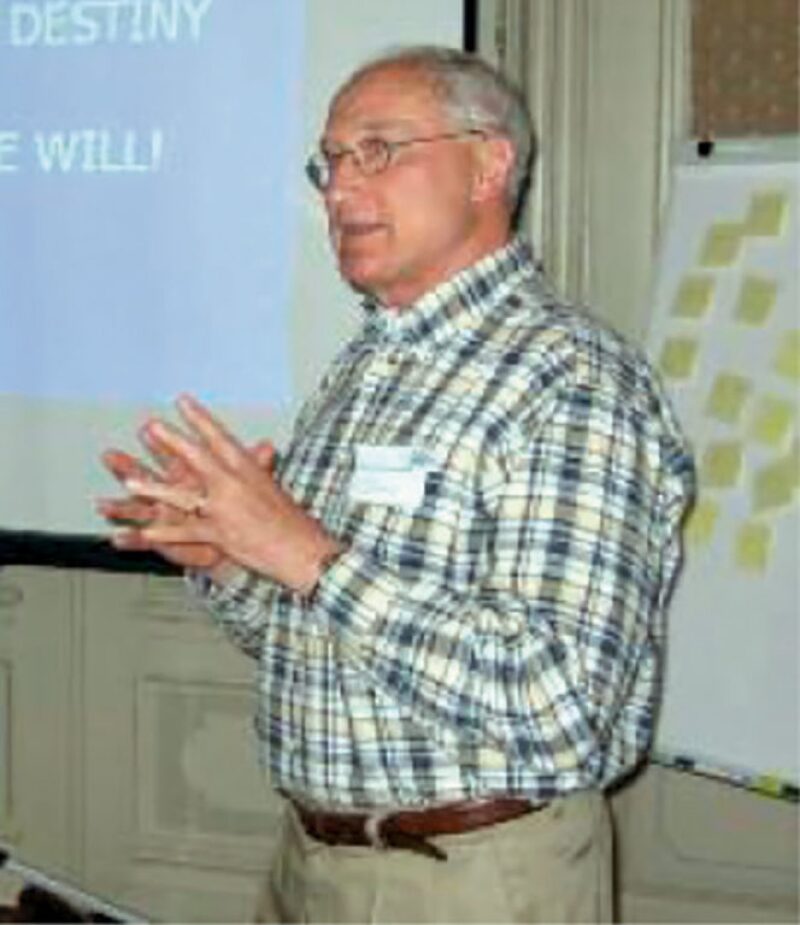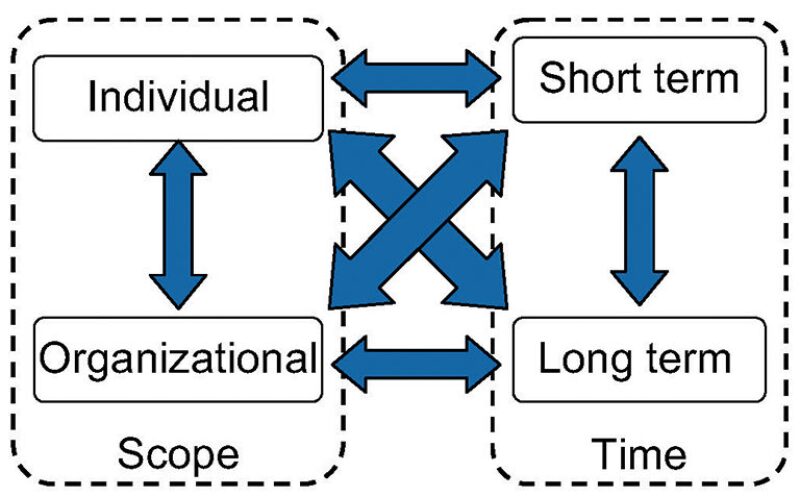No matter where oil prices are, it is important for young professionals (YPs) to have strategies for their careers. Often, plans change as a result of personal circumstances, new opportunities, or things outside of one’s control. But it still is important to work towards a goal and accept that things may change. Today especially, you need many different tools in your toolbox to succeed in an ever-changing environment. Strategies discussed in this article reflect lessons taken away from the YP Career Strategy Workshop in The Hague last May, sponsored by the SPE Netherlands Section. – Tim Crumrine, Lisa Song, Yekemi Bolare Otaru, and Carlos Chalbaud, Editors, Soft Skills

“We are so busy meeting deadlines, we don’t have time to plan and prepare for the future.” What person has never heard this dogma? Do you want to acquire new skills to perform your tasks more efficiently, achieving the same task in less time? You might want to acquire even more new skills to become more effective, and achieve the same objectives but with a different strategy, in less time, and with a higher-quality result. Alternatively, you could desire to achieve different objectives by getting a different job requiring a new skill set. Stephen Covey’s book, The Seven Habits of Highly Effective People, devotes an entire chapter to this. However, this article is not only about skills, it can be as well about your future, your career. Do careers come “as is,” or should you plan for them on the short, medium, and long term? And does your planned career track coincide with the plans your boss may have for you? These may be fundamental tensions—between the short-term “here and now” and a long-term, carefully planned and prepared strategy for the future, and possibly between one’s individual objectives and organizational goals.
The tension common between personal and organizational objectives for the short, medium, and long term, is visualized in Fig. 1. This tension not only often affects young professionals (YPs), as they prepare to assume greater responsibilities, it also can affect students and senior professionals. This individual short-term focus can be to excel on a project or exam, to meet urgent deadlines, or to deliver projects. Longer-term individual objectives can be the specific job and/or location you desire and can involve gathering the specific skills required to earn a big promotion. Organizational short-term focus can be to push and complete projects, close skills gaps in teams, or meet deadlines. On the medium- to long-term horizon are issues such as corporate skills planning, growth, and international staffing.

Issues like these were the focus of an SPE Netherlands Section workshop for YPs and students, held in The Hague last May. A panelist at the workshop, Operations Geophysicist Andries Wever of Wintershall, said, “When I was a student, I always experienced the tension between excelling on that one exam, or doing a quick-and-dirty job, passing the exam with limited effort and only decent results, and going to that additional field camp in some nice location. Now, in the YP practice, this is still paramount. On the one hand, one is eager to demonstrate achievements with the projects done and the quality delivered. On the other hand, the here-and-now nature of operations can make it hard and difficult to plan for the near- and midfuture.”
Many individuals do not deal with this tension between time horizons as well as they might, one reason being that career planning generally is not taught at universities. Not surprisingly, YPs often just go with the flow, merely following the lead of the human resources department.
The divergent objectives for here-and-now vs. some future should not distract you from proper planning. You should acquire the skills to do your current job better. At the same time, you should gear up for the next step, whether it is 2 or 10 years from now. Moreover, if you envisage a certain challenge, you should communicate this to your superiors.
Said Tanja Oldenziel, Senior Search Consultant, Worldwideworker, and a panelist at the SPE Netherlands workshop, “You will be surprised how often your plans or aspirations fit within company’s objectives. Communicate and work towards a mutual understanding where you want to go, and where you will be needed. Draw your own conclusions. Remember though, there are always many roads to Rome; read the map and pick the one that suits you.”
How exactly to advance your career is largely up to you. This means also assessing the trade-off between short- and long-term targets: excelling on that project you’re familiar with, or taking up the challenge of a new and exciting assignment; going for the easy job and maybe the easy life, or accepting that a few years of hard work will get you to your goal, and probably faster. This means that you should have a clear idea what you aspire to in the near and intermediate term and in the distant future, and that you know what skills are needed. Thus, you can monitor your career and manage your career strategy.
“This is exactly the point where a coach or mentor can add tremendous value,” said Iain Percival, a Learning and Coaching Consultant, retired technical and management employee from Shell, and SPE Netherlands workshop panelist. “A senior in your organization can help mapping the options while balancing the pros and cons. Also, he or she can advise on required skills needed to navigate these options. The bottom line is that everyone needs a coach.”
A very important process is to collect the data about yourself and the organization in which you work to check for “fit” and for what gaps in your profile you need to fill to achieve your personal aspirations and deliver on organizational goals. The approach is relatively simple, but if done properly can be a bit uncomfortable. Step 1, detail how you perceive your strengths and weaknesses and check against a candid view of how others see you. There almost certainly will be some gaps. Step 2, be clear about what you want out of life, both personally and professionally, and check against the goals, aspirations, and culture of the organization. Again, there likely will be some gaps.
You then have to decide—with advice—what you need to do to close the gaps coming from step 1. Regarding step 2, if significant gaps emerge from this analysis, you have to make decisions about whether your current organization is right for you and if not, where you believe you could find a better alignment. This is not easy! And it is where a dispassionate mentor or coach can help you discover what is right for you.
The tools are there, having been described above, and with them you have the resources to make a 5-year career plan.
“The greatest value of the [SPE Netherlands] workshop for me was that by participating, I took the time to think about career perspectives outside my normal office environment, without being disturbed by my daily work,” said Alejandra Reynaldos, a Software Support Geoscientist with Schlumberger, Chairperson of the SPE Netherlands YP Section, and panelist at the workshop. “In addition, hearing how other young professionals are thinking about their future is certainly a source for inspiration. Not every company offers the same type of career opportunities, so if you hear something you like, you should go back to your own employer and make it possible.”
In summary, nobody but yourself is responsible for where you are in 5 years. We hope that we have inspired you to incorporate career planning in your busy schedules. A plan shouldn’t be an 80-page thesis. It can be short; it just takes a few coordinates, essentially, but it needs to be written. Invest the effort in this, and you will have a clear destination to sail your course in the seas of opportunity.

